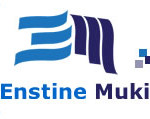Whether you’re building enterprise-grade web applications or tweaking a portfolio site, having the right set of tools can significantly boost your productivity and code quality. Chrome, being the most developer-friendly browser, supports a vast array of extensions that help simplify and enhance the development workflow. In this article, we’ll look at the top 8 Chrome extensions every web developer should have in their toolkit right now — from debugging tools like React DevTools and Redux DevTools to performance analyzers like Lighthouse. Let’s dive in and discover how each tool can level up your development experience.
TL;DR (Too Long; Didn’t Read)
Looking to speed up your web development workflow? Start using Chrome extensions like React DevTools for inspecting component trees, Redux DevTools for managing and debugging state, and JSON Viewer for cleaner JSON formatting. Don’t forget performance and accessibility checks with Lighthouse and tools like Web Developer or ColorZilla for extra efficiency. These extensions will take your dev workflow from good to great.
1. React Developer Tools
React has become the cornerstone of modern frontend development. React Developer Tools is an indispensable Chrome extension for anyone working with React. It allows developers to:
- Inspect the component tree in real-time
- View current props and state values
- Track the component hierarchy and performance bottlenecks
Once installed, you’ll find a new “React” tab in your Chrome DevTools. This extension is vital for understanding how your components interact and where data flows.
Image not found in postmeta2. Redux DevTools
If your application uses Redux for state management, Redux DevTools is the sidekick you need. This tool provides:
- Time-travel debugging (undo/redo state changes)
- Action logging and state inspection
- Custom monitor integration
Redux DevTools shows dispatched actions and how the state changes with each one. It’s a godsend for debugging complex data flows and ensuring the application behaves as expected.
3. JSON Viewer
APIs and JSON data go hand-in-hand with web development. Raw JSON can be tough to read in Chrome’s default view. JSON Viewer solves this problem by automatically formatting JSON into a collapsible, color-coded layout.
Some extensions, like JSON Viewer Pro, also allow:
- Syntax highlighting
- Tree navigation
- Search within the JSON
It makes working with REST APIs and backend responses a breeze. Every developer who’s ever tried to parse nested JSON manually will appreciate this one.
4. Lighthouse
Created by Google, Lighthouse is more than just a performance analyzer — it’s a web auditing tool that evaluates:
- Performance
- Accessibility
- SEO
- Progressive Web App capabilities
By running Lighthouse, you’ll get a detailed report with suggestions for improvement. This extension is especially useful if performance and user experience are top priorities for your projects. Bonus tip: Combine Lighthouse with Chrome DevTools for even deeper insights.
5. Web Developer
This extension, aptly named Web Developer, adds a toolbar button with various tools for analyzing and testing web pages. It can:
- Disable JavaScript, cookies, and CSS selectively
- Inspect forms and image properties
- Visualize layout elements like borders and outlines
It’s not only for developers but also great for QA testers, designers, and accessibility evaluators. Essentially, it gives you control over everything you see and don’t see on the page.
6. ColorZilla
Designers and frontend developers will love ColorZilla. Ever spotted a color on a webpage and wondered what hex code it is? ColorZilla lets you pick any color from any pixel on the screen using its built-in color picker.
Other features include:
- CSS gradient generator
- Page color analyzer for palette extraction
- History of selected colors
It’s quick, simple, and essential for matching brand guidelines or tweaking UI color schemes.
7. WhatFont
Typography is a big part of web design, and WhatFont helps you identify fonts on any webpage just by hovering over text. It provides:
- Font family and style
- Font size and weight
- Line height and color information
Design and frontend teams can use this tool to stay consistent with typography specs while inspecting competitors or references.
8. Wappalyzer
Curious about what technologies a website uses? Wappalyzer is a powerful tool that detects frameworks, libraries, CMS, analytics tools, and more.
Instantly see if a website is running:
- React, Angular, Vue, or other frontend frameworks
- CMS platforms like WordPress or Drupal
- Backend tech such as PHP, Django, or Ruby on Rails
Great for competitive analysis, learning from others’ tech stacks, or satisfying plain ol’ curiosity.
Bonus Tips: Making the Most of These Extensions
Having the extensions is only half the battle; using them effectively can make a big difference. Here are a few bonus tips:
- Organize your extensions: Use Chrome’s extension bar to pin only the ones you use daily. Keep the rest easily accessible but hidden.
- Disable when not in use: Some extensions may slow down page loads or conflict with others. Disable those you don’t need immediately.
- Combine tools: Use React DevTools and Redux DevTools together for full visibility of your React+Redux apps.
- Set up keyboard shortcuts: Chrome allows assigning shortcuts to extensions for quicker access under chrome://extensions/shortcuts.
Conclusion
There you have it — the 8 Chrome extensions that every web developer should consider adding to their toolkit. These tools not only improve your workflow but also help deliver cleaner code, better UX, and faster development cycles. Regardless of whether you’re a junior developer or a seasoned pro, incorporating these extensions can give you a noticeable edge in your daily work.
From debugging and state inspection with React and Redux DevTools, to analyzing performance with Lighthouse, and enhancing UI with ColorZilla and WhatFont, these extensions cover all bases. Try them out and see which ones fit your workflow best — chances are, once you start using them, you’ll wonder how you ever lived without them.

